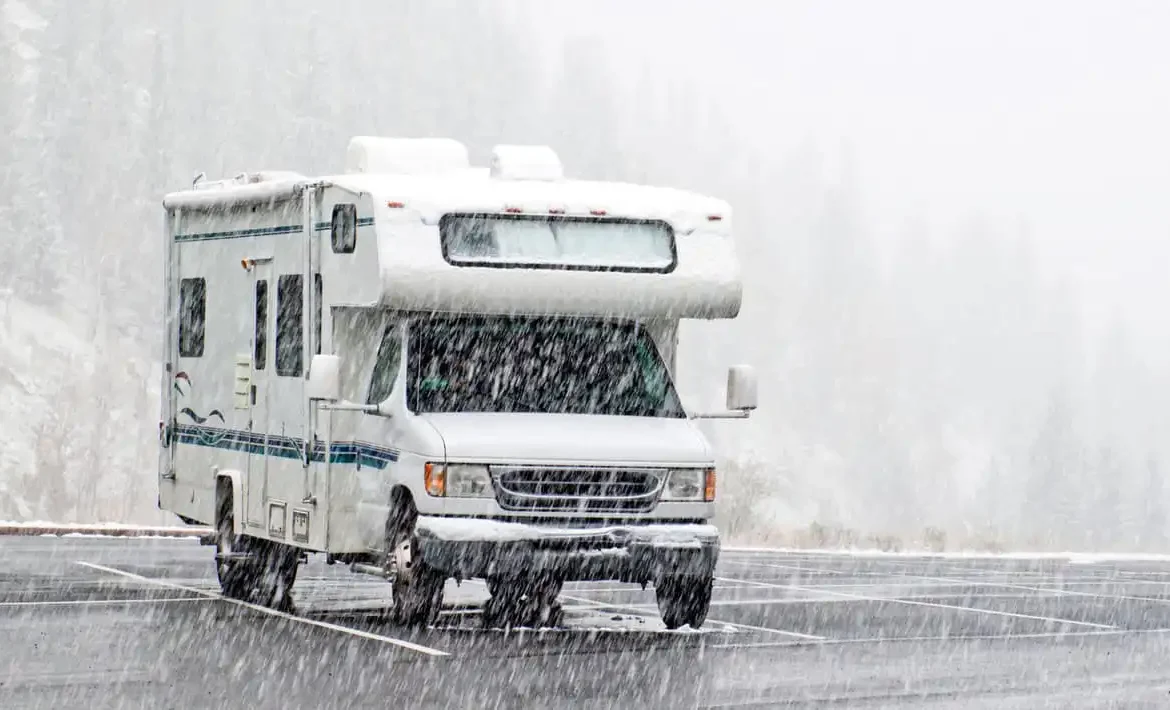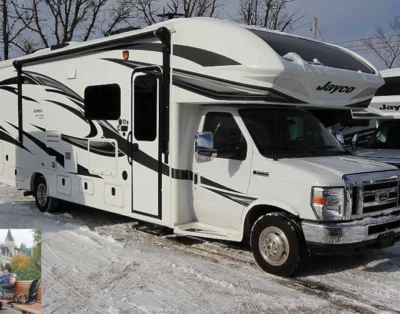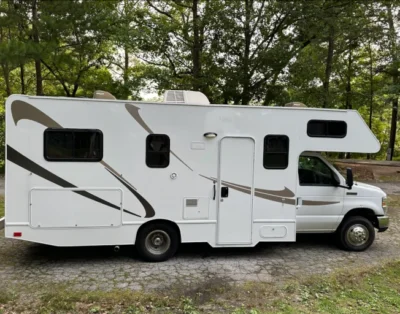Tips for Avoiding Extreme Weather While RVing in Canada: A Guide for Savvy Travelers
As an RV enthusiast who’s spent countless hours exploring Canada’s vast landscapes, I’ve learned firsthand the importance of being prepared for the unpredictable weather that can pop up during a road trip. Canada, with its stunning mountains, lakes, and forests, is a beautiful country to explore in an RV, but its weather can range from sunny and mild to fierce storms or even snowstorms — no matter the season. So, whether you’re in the heart of summer or the chill of winter, it’s essential to know Tips for Avoiding Extreme Weather While RVing in Canada.
Here’s a friendly and professional guide, packed with tips and advice from my own experiences, to help you prepare and navigate extreme weather while RVing in Canada.
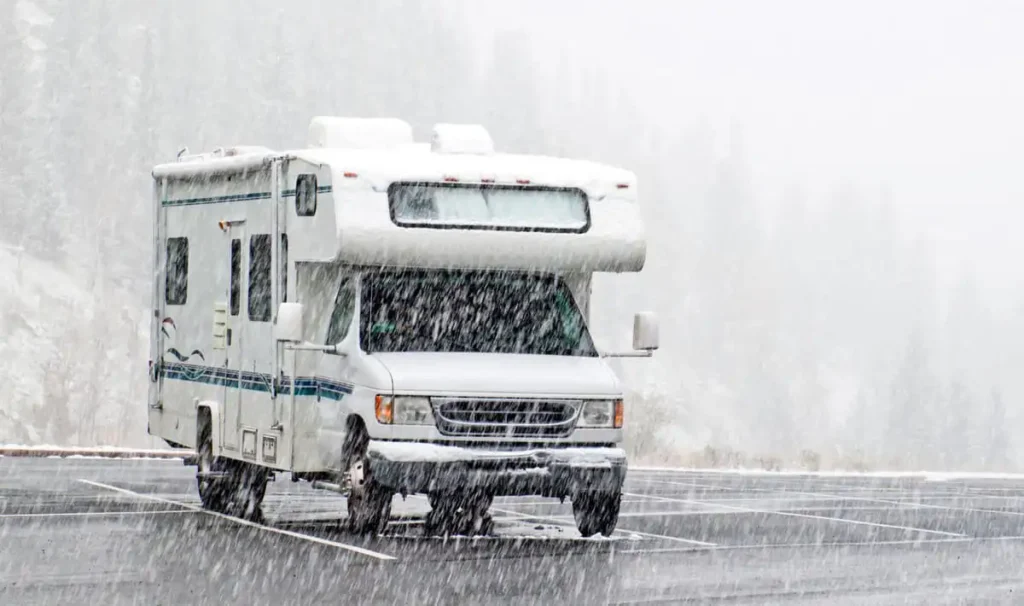
6 Tips for Avoiding Extreme Weather While RVing in Canada:
1. Know the Seasons and Regional Weather Patterns
Before embarking on your RV adventure across Canada, it’s crucial to understand the regional weather patterns and seasonal variations. While Canada is famous for its colder regions, there are significant differences depending on where you’re traveling.
- West Coast (British Columbia): Expect a lot of rain in the winter and mild temperatures. In the summer, temperatures can range from 20°C to 30°C, but it can quickly shift if a storm moves in from the Pacific Ocean.
- Northern Canada: The further north you go, the more unpredictable the weather. Expect very cold temperatures, especially from October to April, with a chance of snowstorms even in spring and fall.
- Prairies (Alberta, Saskatchewan, Manitoba): These regions can experience severe thunderstorms and tornadoes in summer, while winters can bring freezing temperatures and heavy snow.
- Central and Eastern Canada (Ontario, Quebec): Summer can be humid, and winters are often freezing with icy winds and snowstorms.
- Atlantic Canada (Nova Scotia, Newfoundland): Expect a mix of coastal rain and unpredictable snowstorms in winter, but lovely, cool summers.
By understanding these patterns, you can plan your route to avoid extreme weather areas during the wrong season.

2. Check the Weather Before You Go: Always Be Prepared
Knowing how to check the weather is key to staying safe on your RV journey. There are a few ways to keep tabs on current conditions and avoid nasty surprises:
- Weather Apps and Websites: The days of getting caught off guard by weather are long gone. Use reliable weather apps like The Weather Network, AccuWeather, or Weather Canada to get hourly updates, warnings, and forecasts. Many of these apps even let you set up weather alerts based on your location. A good app will provide the details you need about temperature, wind conditions, storms, and more.
- National Weather Alerts: The Government of Canada issues weather warnings for extreme conditions like heavy snowfall, thunderstorms, and tornadoes. Check these before you travel to stay ahead of any potential dangers.
- RV-Specific Weather Monitoring: There are now weather monitoring systems designed specifically for RVs. These systems often come with antennas or satellite dishes that connect to your RV’s power supply and give real-time weather updates right on your dashboard.
- Social Media and Local News: Keep an eye on Twitter, Facebook, or other social platforms for weather updates from locals and other travelers. Local news stations often share real-time updates and warnings about severe weather conditions.
By checking the weather before heading out, you can adjust your plans if you spot incoming extreme weather.

3. Equip Your RV for All Conditions
One of the best things about RVing in Canada is that you have everything you need with you. But it’s also a double-edged sword — while you have the comfort of your own space, your RV must be ready for all weather conditions. Here’s what you should have on board:
A Reliable Heating and Cooling System
If you’re RVing in the winter, having a strong and efficient heating system is a must. In the summer, you’ll want an air conditioning system that can keep things comfortable, especially if you’re traveling through hot areas like southern Ontario.
- For Winter: Invest in an RV with good insulation or use additional insulation options like window covers, heated blankets, and floor mats to prevent heat from escaping.
- For Summer: Ensure your air conditioning system is in tip-top shape, and make sure the ventilation and fans are working to keep the airflow steady inside the RV.
Weather-Resistant Tires
Your RV’s tires need to be able to handle all kinds of terrain and weather. If you’re heading to mountainous or snowy regions, invest in winter tires or all-season tires with good traction. Keep a tire gauge handy, and check tire pressure frequently.
Portable Generators
Whether you’re boondocking in the wilds of British Columbia or staying in a remote area where power outages are a concern, having a portable generator on board is a great idea. If the weather goes awry and the power goes out, your generator will allow you to keep the lights on, your fridge cold, and your heating system working.
Leveling Equipment
Extreme weather can cause sudden shifts in conditions, including rainstorms that may lead to flooding. Having leveling blocks ensures that your RV stays stable during storms, preventing any risks of tipping or getting stuck in soft ground.
Click Here is eParts for your RV where you can to find everything for your RV
4. Plan Your Routes Wisely
When planning your route, try to avoid areas that are known for severe weather events. For example, if you’re traveling during the summer months, steer clear of regions prone to tornadoes or violent thunderstorms like Alberta and Saskatchewan. In the winter, consider avoiding areas that are susceptible to heavy snow and icy roads, particularly in Northern Ontario and the Rockies.
Another tip: Check for Weather Advisories and Road Closures. If snow or floods are expected, certain routes may close temporarily. The last thing you want is to be stuck on an unplowed road or trapped in a snowstorm.
If you’re heading through more remote areas, use a reliable GPS system, but also carry a paper map as a backup. GPS systems sometimes can’t offer the same kind of localized road and weather information as a good old-fashioned map.

5. Be Ready for Emergencies
Sometimes, even the best-laid plans can go awry. Being prepared for any situation, especially during extreme weather, is essential for your safety. Here are a few key things you should always have on hand:
- Emergency Kits: Stock up on an emergency kit with essentials like food, water, first aid supplies, flashlights, extra batteries, blankets, and extra fuel.
- Snow Chains (Winter): If you’re RVing in the winter, snow chains are a must-have for when icy or snowy roads become a challenge. Know how to put them on and take them off to avoid any roadblocks.
- Roadside Assistance: Ensure you have an RV-specific roadside assistance service, which can come to your aid in case of breakdowns caused by bad weather. These services often provide tire changes, lock-out assistance, and even towing.
- Backup Power Supply: A portable power supply or solar-powered battery pack can be lifesaving in situations where power is out for an extended period.
6. When Extreme Weather Hits: What to Do
If you do find yourself caught in severe weather, take the following steps:
- Stay Inside Your RV: Avoid leaving your RV unless absolutely necessary. It’s your shelter from the storm, and you should remain in it to stay safe and dry.
- Keep Your RV’s Engine Running (If Safe): If you’re stuck in a snowstorm or an intense heatwave, keeping the engine running can help maintain a comfortable temperature inside. Just be sure to check the exhaust pipe for snow buildup.
- Monitor Updates: Continue checking the weather through apps, local news, or your RV’s weather monitoring system to stay informed about the storm’s progression and road conditions.
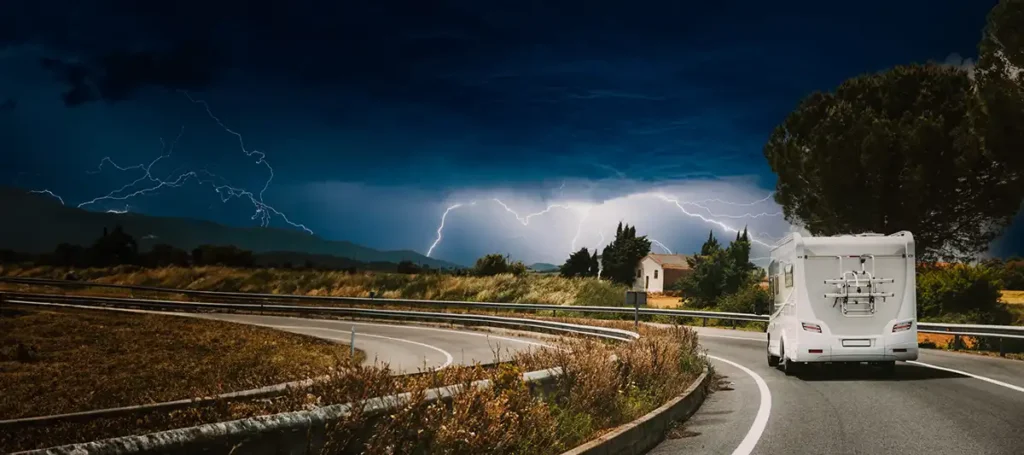
Tips for Avoiding Extreme Weather While RVing in Canada – Prepare, Be Flexible, and Stay Safe
Canada is an incredible place to explore by RV, and with a little preparation, you can avoid extreme weather and enjoy your journey. The key is knowing the weather, equipping your RV, and staying flexible. No matter the season, nature can be unpredictable, but with these tips and a well-prepared mindset, you’ll be ready to enjoy Canada’s beauty — no matter the weather!
So, pack your gear, check the weather, and most importantly — enjoy your adventure! Stay safe out there, fellow RVers. Happy travels!

